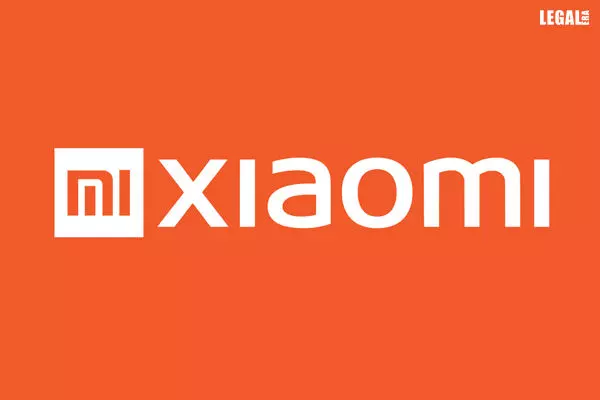- Home
- News
- Articles+
- Aerospace
- Artificial Intelligence
- Agriculture
- Alternate Dispute Resolution
- Arbitration & Mediation
- Banking and Finance
- Bankruptcy
- Book Review
- Bribery & Corruption
- Commercial Litigation
- Competition Law
- Conference Reports
- Consumer Products
- Contract
- Corporate Governance
- Corporate Law
- Covid-19
- Cryptocurrency
- Cybersecurity
- Data Protection
- Defence
- Digital Economy
- E-commerce
- Employment Law
- Energy and Natural Resources
- Entertainment and Sports Law
- Environmental Law
- Environmental, Social, and Governance
- Foreign Direct Investment
- Food and Beverage
- Gaming
- Health Care
- IBC Diaries
- In Focus
- Inclusion & Diversity
- Insurance Law
- Intellectual Property
- International Law
- IP & Tech Era
- Know the Law
- Labour Laws
- Law & Policy and Regulation
- Litigation
- Litigation Funding
- Manufacturing
- Mergers & Acquisitions
- NFTs
- Privacy
- Private Equity
- Project Finance
- Real Estate
- Risk and Compliance
- Student Corner
- Take On Board
- Tax
- Technology Media and Telecom
- Tributes
- Viewpoint
- Zoom In
- Law Firms
- In-House
- Rankings
- E-Magazine
- Legal Era TV
- Events
- Middle East
- Africa
- News
- Articles
- Aerospace
- Artificial Intelligence
- Agriculture
- Alternate Dispute Resolution
- Arbitration & Mediation
- Banking and Finance
- Bankruptcy
- Book Review
- Bribery & Corruption
- Commercial Litigation
- Competition Law
- Conference Reports
- Consumer Products
- Contract
- Corporate Governance
- Corporate Law
- Covid-19
- Cryptocurrency
- Cybersecurity
- Data Protection
- Defence
- Digital Economy
- E-commerce
- Employment Law
- Energy and Natural Resources
- Entertainment and Sports Law
- Environmental Law
- Environmental, Social, and Governance
- Foreign Direct Investment
- Food and Beverage
- Gaming
- Health Care
- IBC Diaries
- In Focus
- Inclusion & Diversity
- Insurance Law
- Intellectual Property
- International Law
- IP & Tech Era
- Know the Law
- Labour Laws
- Law & Policy and Regulation
- Litigation
- Litigation Funding
- Manufacturing
- Mergers & Acquisitions
- NFTs
- Privacy
- Private Equity
- Project Finance
- Real Estate
- Risk and Compliance
- Student Corner
- Take On Board
- Tax
- Technology Media and Telecom
- Tributes
- Viewpoint
- Zoom In
- Law Firms
- In-House
- Rankings
- E-Magazine
- Legal Era TV
- Events
- Middle East
- Africa
Xiaomi appeals before Karnataka High Court against Single-Judge Order Upholding Section 37A of FEMA

Xiaomi appeals before Karnataka High Court against Single-Judge Order Upholding Section 37A of FEMA
The case has been posted for hearing on 11 July
Chinese technology company Xiaomi has challenged an order of the single-judge bench of the Karnataka High Court upholding the constitutional validity of Section 37A of the Foreign Exchange Management Act (FEMA).
In the Xiaomi Technology India Pvt Ltd vs Union of India case, a Division Bench comprising Chief Justice Prasanna B Varale and Justice MGS Kamal sought the Central Government's response to the plea.
Earlier, in the 21 April order, the single-judge bench of Justice M Nagaprasanna rejected the challenge to the constitutional validity of Section 37A. He stated, "What would unmistakably emerge is that Section 37A of the Act does not suffer from any manifest arbitrariness for this court to strike it down on any of the grounds urged by the petitioner."
The decision was reached after Xiaomi pleaded challenging an order of the Enforcement Directorate (ED) seizing Rs. 5,551.27 crores from its bank accounts.
While disputing the seizure, the company had also challenged the constitutional validity of Section 37A, under which proceedings were initiated against it. It said that the Section suffered from manifest arbitrariness, giving unbridled and unguided power to the authorities.
On the other hand, the respondents contended that a challenge to the constitutional validity of Section 37A was not maintainable since the company had its genesis in China. It could not challenge the laws made in India.
While examining the issue of maintainability, the single-judge ruled that while Articles 14 and 21 of the Constitution of India were available to everyone and not limited to Indian citizens, Articles 15, 16 & 19 were restricted only to the citizens of India.
Thus, a ground claiming violation of Article 14 was held maintainable as it was ‘person-centric’ and not ‘citizen-centric’.
The bench stated, "Therefore the first issue that has arisen for consideration qua maintainability is answered in favor of the petitioner holding the petition to be maintainable qua the challenge." However, on examining the Section, the court rejected the contention that the provision contained no checks and balances while detailing the broad contours of safeguards under the law.
Refusing to accept the company's argument, Justice Nagaprasanna stated that the seizure order was neither cryptic nor perfunctory. He held, "It is in great detail and runs into more than 250 pages. It is not the number of pages that matters, but the content in those pages, which clearly indicate the application of mind.”
Aggrieved by the order, Xiaomi appealed before the Division Bench.



